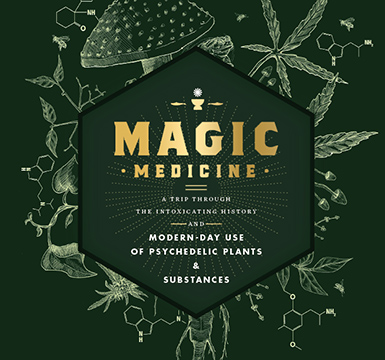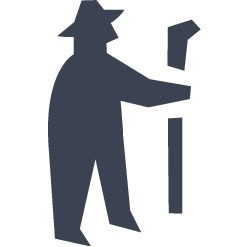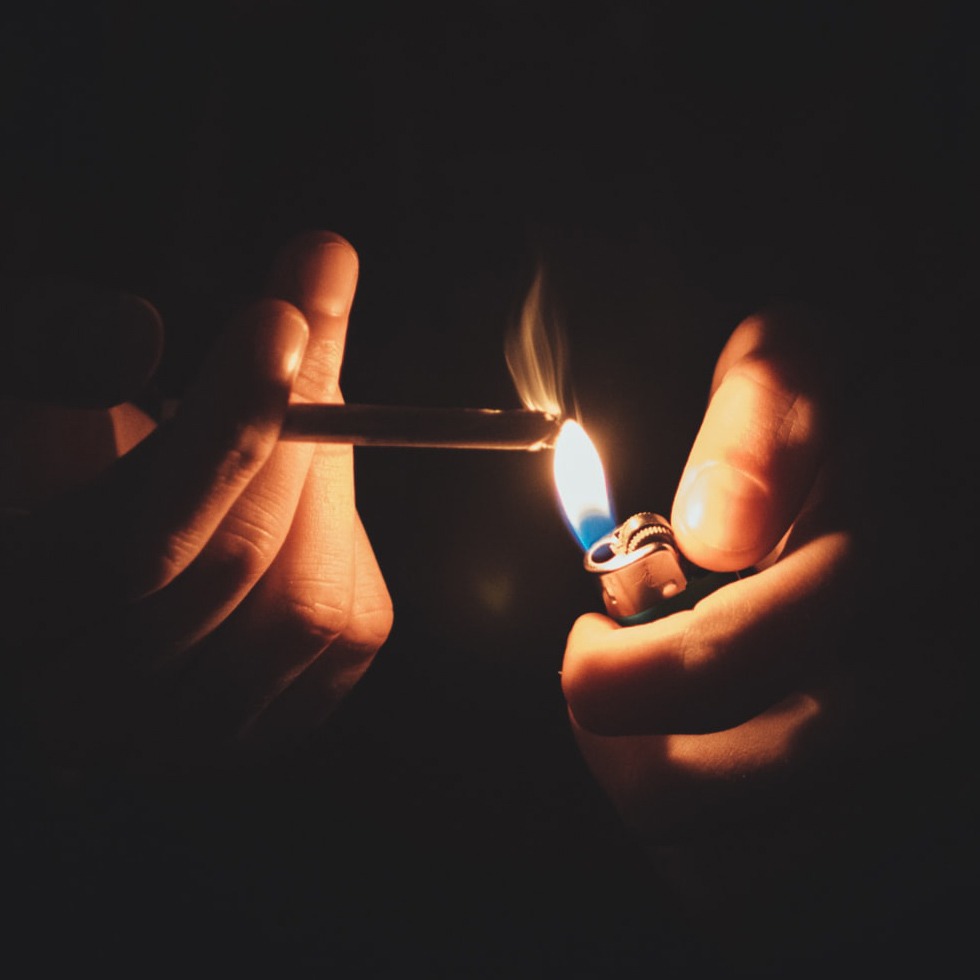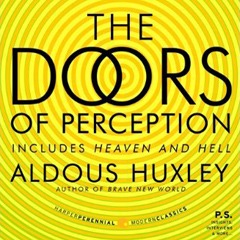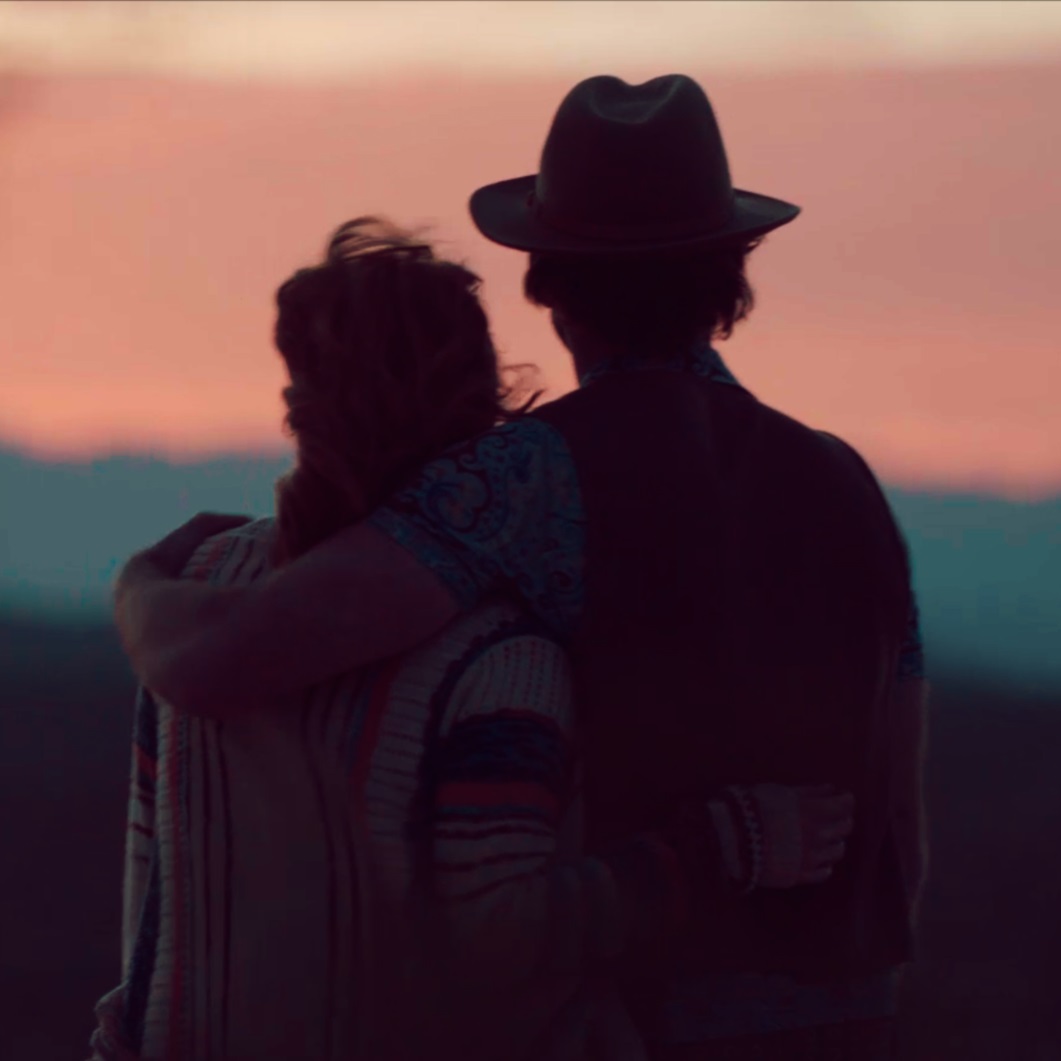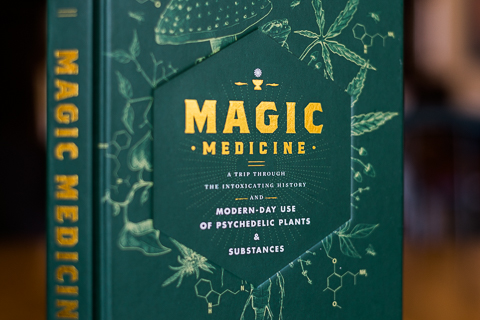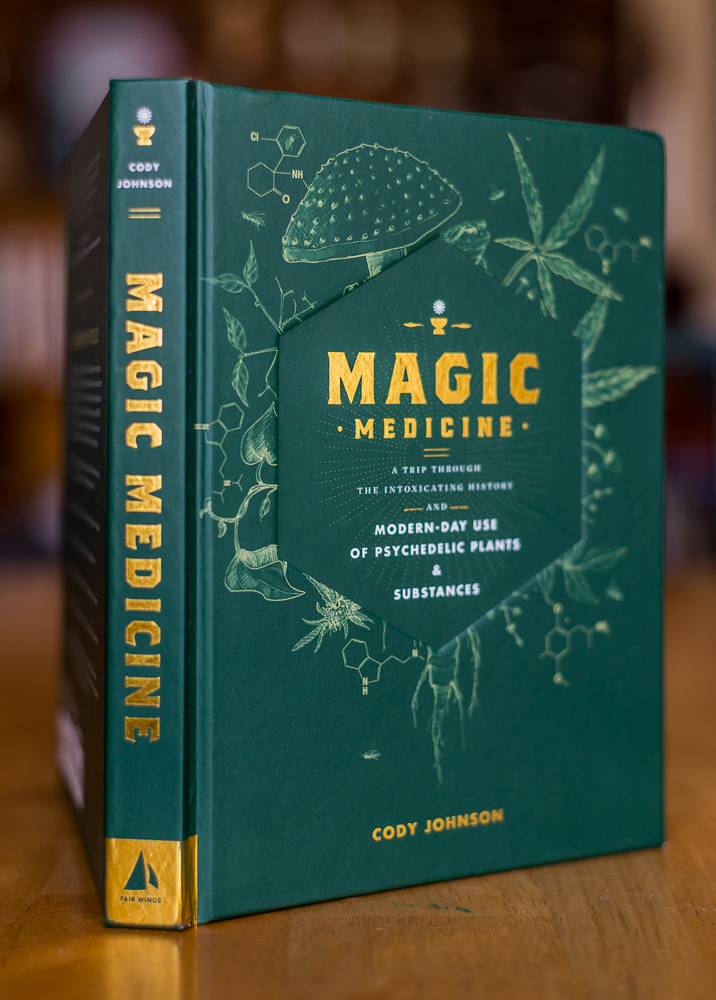One Last LSD Trip The Beautiful Death of Aldous Huxley
by Psychedelic Frontier on Oct 21, 2013 4 Comments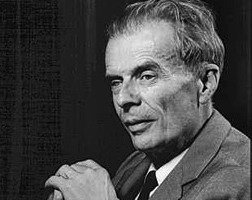 Aldous Huxley was known for his incredible books and essays, among them The Doors of Perception, a 1954 book discussing his experiences with mescaline, and Island, a novel about a utopian society. In Island, the citizens inhabit a constant state of acceptance thanks to meditation and a psychedelic agent they call “moksha medicine.” A character describes moksha as “the reality reliever, the truth-and-beauty pill,” allowing users to “catch a glimpse of the world as it looks to someone who has been liberated from his bondage to the ego.” Huxley was an elder statesman of the psychedelic movement, one who advocated the intelligent and cautious use of these chemicals to liberate the human spirit.
Aldous Huxley was known for his incredible books and essays, among them The Doors of Perception, a 1954 book discussing his experiences with mescaline, and Island, a novel about a utopian society. In Island, the citizens inhabit a constant state of acceptance thanks to meditation and a psychedelic agent they call “moksha medicine.” A character describes moksha as “the reality reliever, the truth-and-beauty pill,” allowing users to “catch a glimpse of the world as it looks to someone who has been liberated from his bondage to the ego.” Huxley was an elder statesman of the psychedelic movement, one who advocated the intelligent and cautious use of these chemicals to liberate the human spirit.
So it is fitting that, on the day he died of cancer 1963, Huxley asked his wife Laura to administer LSD to him — his own moksha medicine of choice. She obliged, giving him 200µg before he slipped into the void. This poignant letter, written by Laura to Aldous’ older brother just days after his death, offers proof that Huxley believed what he preached about psychedelics. (This version is shortened to just the best parts; if you want to read the whole letter, it’s on Erowid.)
![]()
Dearest Julian and Juliette:
There is so much I want to tell you about the last week of Aldous’ life and particularly the last day. What happened is important not only for us close and loving but it is almost a conclusion, better, a continuation of his own work, and therefore it has importance for people in general.
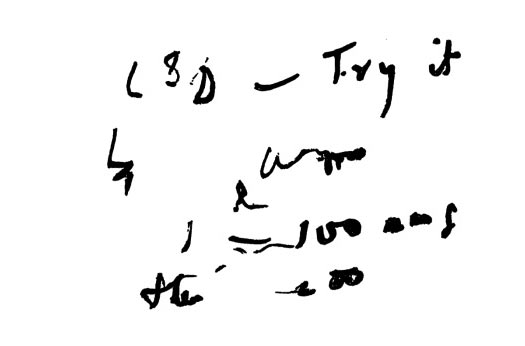
Aldous Huxley’s written request for intramuscular LSD, reproduced in Laura’s biography of her husband, This Timeless Moment
Suddenly he had accepted the fact of death; he had taken this moksha medicine in which he believed.
[pullquotecenter]”You are going towards a greater love than you have ever known. You are going towards the best, the greatest love, and it is easy, it is so easy, and you are doing it so beautifully.”[/pullquotecenter]
After half an hour, the expression on his face began to change a little, and I asked him if he felt the effect of LSD, and he indicated no. Yet, I think that a something had taken place already. This was one of Aldous’ characteristics. He would always delay acknowledging the effect of any medicine, even when the effect was quite certainly there, unless the effect was very, very stong he would say no. Now, the expression of his face was beginning to look as it did every time that he had the moksha medicine, when this immense expression of complete bliss and love would come over him. This was not the case now, but there was a change in comparison to what his face had been two hours ago. I let another half hour pass, and then I decided to give him another 100 mg. I told him I was going to do it, and he acquiesced. I gave him another shot, and then I began to talk to him. He was very quiet now; he was very quiet and his legs were getting colder; higher and higher I could see purple areas of cynosis. Then I began to talk to him, saying, “Light and free.” Some of these things I told him at night in these last few weeks before he would go to sleep, and now I said it more convincingly, more intensely – “go, go, let go, darling; forward and up. You are going forward and up; you are going towards the light. Willing and consciously you are going, willingly and consciously, and you are doing this beautifully; you are doing this so beautifully – you are going towards the light; you are going towards a greater love; you are going forward and up. It is so easy; it is so beautiful. You are doing it so beautifully, so easily. Light and free. Forward and up. You are going towards Maria’s love with my love. You are going towards a greater love than you have ever known. You are going towards the best, the greatest love, and it is easy, it is so easy, and you are doing it so beautifully.” I believe I started to talk to him – it must have been about one or two o’clock. It was very difficult for me to keep track of time. The nurse was in the room and Rosalind and Jinny and two doctors – Dr. Knight and Dr. Cutler. They were sort of far away from the bed. I was very, very near his ears, and I hope I spoke clearly and understandingly. Once I asked him, “Do you hear me?” He squeezed my hand. He was hearing me. I was tempted to ask more questions, but in the morning he had begged me not to ask any more question, and the entire feeling was that things were right. I didn’t dare to inquire, to disturb, and that was the only question that I asked, “Do you hear me?” Maybe I should have asked more questions, but I didn’t.
[pullquoteleft]The ceasing of the breathing was not a drama at all, because it was done so slowly, so gently, like a piece of music just finishing in a sempre piu piano dolcemente.[/pullquoteleft]Later on I asked the same question, but the hand didn’t move any more. Now from two o’clock until the time he died, which was five-twenty, there was complete peace except for once. That must have been about three-thirty or four, when I saw the beginning of struggle in his lower lip. His lower lip began to move as if it were going to be a struggle for air. Then I gave the direction even more forcefully. “It is easy, and you are doing this beautifully and willingly and consciously, in full awareness, in full awareness, darling, you are going towards the light.” I repeated these or similar words for the last three or four hours. Once in a while my own emotion would overcome me, but if it did I immediately would leave the bed for two or three minutes, and would come back only when I could dismiss my emotion. The twitching of the lower lip lasted only a little bit, and it seemed to respond completely to what I was saying. “Easy, easy, and you are doing this willingly and consciously and beautifully – going forward and up, light and free, forward and up towards the light, into the light, into complete love.” The twitching stopped, the breathing became slower and slower, and there was absolutely not the slightest indication of contraction, of struggle. it was just that the breathing became slower – and slower – and slower, and at five-twenty the breathing stopped.
[pullquotecenter]These five people all said that this was the most serene, the most beautiful death. Both doctors and nurse said they had never seen a person in similar physical condition going off so completely without pain and without struggle.[/pullquotecenter]
I had been warned in the morning that there might be some up-setting convulsions towards the end, or some sort of contraction of the lungs, and noises. People had been trying to prepare me for some horrible physical reaction that would probably occur. None of this happened, actually the ceasing of the breathing was not a drama at all, because it was done so slowly, so gently, like a piece of music just finishing in a sempre piu piano dolcemente. I had the feeling actually that the last hour of breathing was only the conditioned reflex of the body that had been used to doing this for 69 years, millions and millions of times. There was not the feeling that with the last breath, the spirit left. It had just been gently leaving for the last four hours. In the room the last four hours were two doctors, Jinny, the nurse, Rosalind Roger Gopal – you know she is the great friend of Krishnamurti, and the directress of the school in Ojai for which Aldous did so much. They didn’t seem to hear what I was saying. I thought I was speaking loud enough, but they said they didn’t hear it. Rosalind and Jinny once in a while came near the bed and held Aldous’ hand. These five people all said that this was the most serene, the most beautiful death. Both doctors and nurse said they had never seen a person in similar physical condition going off so completely without pain and without struggle.
We will never know if all this is only our wishful thinking, or if it is real, but certainly all outward signs and the inner feeling gave indication that it was beautiful and peaceful and easy.
Aldous’ asking for moksha medicine while dying is a confirmation of his work, and as such is of importance not only to us, but to the world.
And now, after I have been alone these few days, and less bombarded by other people’s feelings, the meaning of this last day becomes clearer and clearer to me and more and more important. Aldous was, I think (and certainly I am) appalled at the fact that what he wrote in ISLAND was not taken seriously. It was treated as a work of science fiction, when it was not fiction because each one of the ways of living he described in ISLAND was not a product of his fantasy, but something that had been tried in one place or another and some of them in our own everyday life. If the way Aldous died were known, it might awaken people to the awareness that not only this, but many other facts described in ISLAND are possible here and now. Aldous’asking for moksha medicine while dying is a confirmation of his work, and as such is of importance not only to us, but to the world. It is true we will have some people saying that he was a drug addict all his life and that he ended as one, but it is history that Huxleys stop ignorance before ignorance can stop Huxleys.
Even after our correspondence on the subject, I had many doubts about keeping Aldous in the dark regarding his condition. It seemed not just that, after all he had written and spoken about death, he should be let to go into it unaware. And he had such complete confidence in me – he might have taken it for granted that had death been near I certainly would have told him and helped him. So my relief at his sudden awakening at his quick adjusting is immense. Don’t you feel this also.
Now, is his way of dying to remain our, and only our relief and consolation, or should others also benefit from it? What do you feel?
![]()
Laura Huxley also discusses the experience in this short video:
How about you? Would you have the courage to take a psychedelic as your last rite? Would it deepen and enhance the experience of dying, or merely cheapen the process? Chime in below!
Sources: Letters of Note and Erowid
Liked this post? Subscribe to my RSS feed to get much more!

